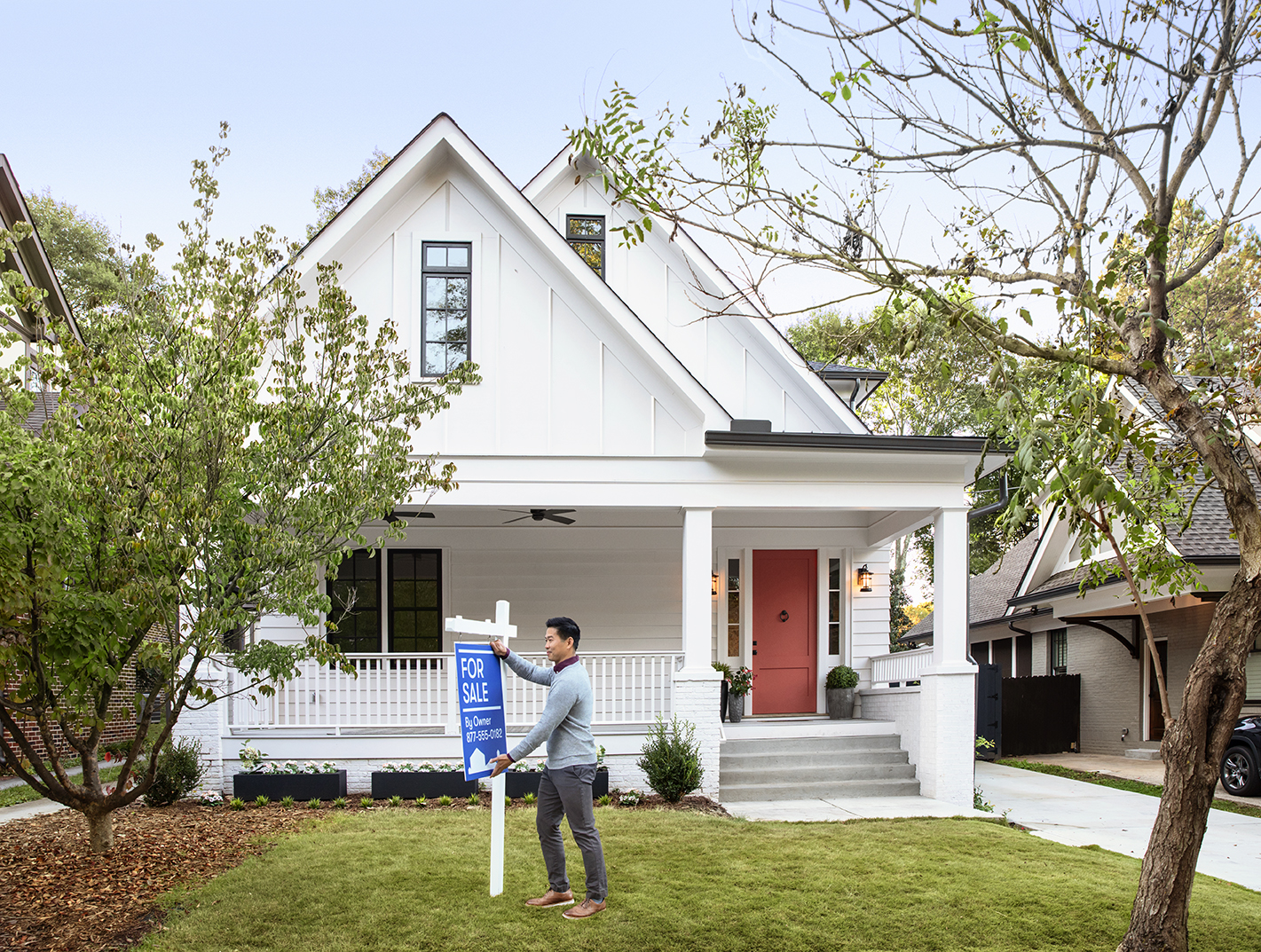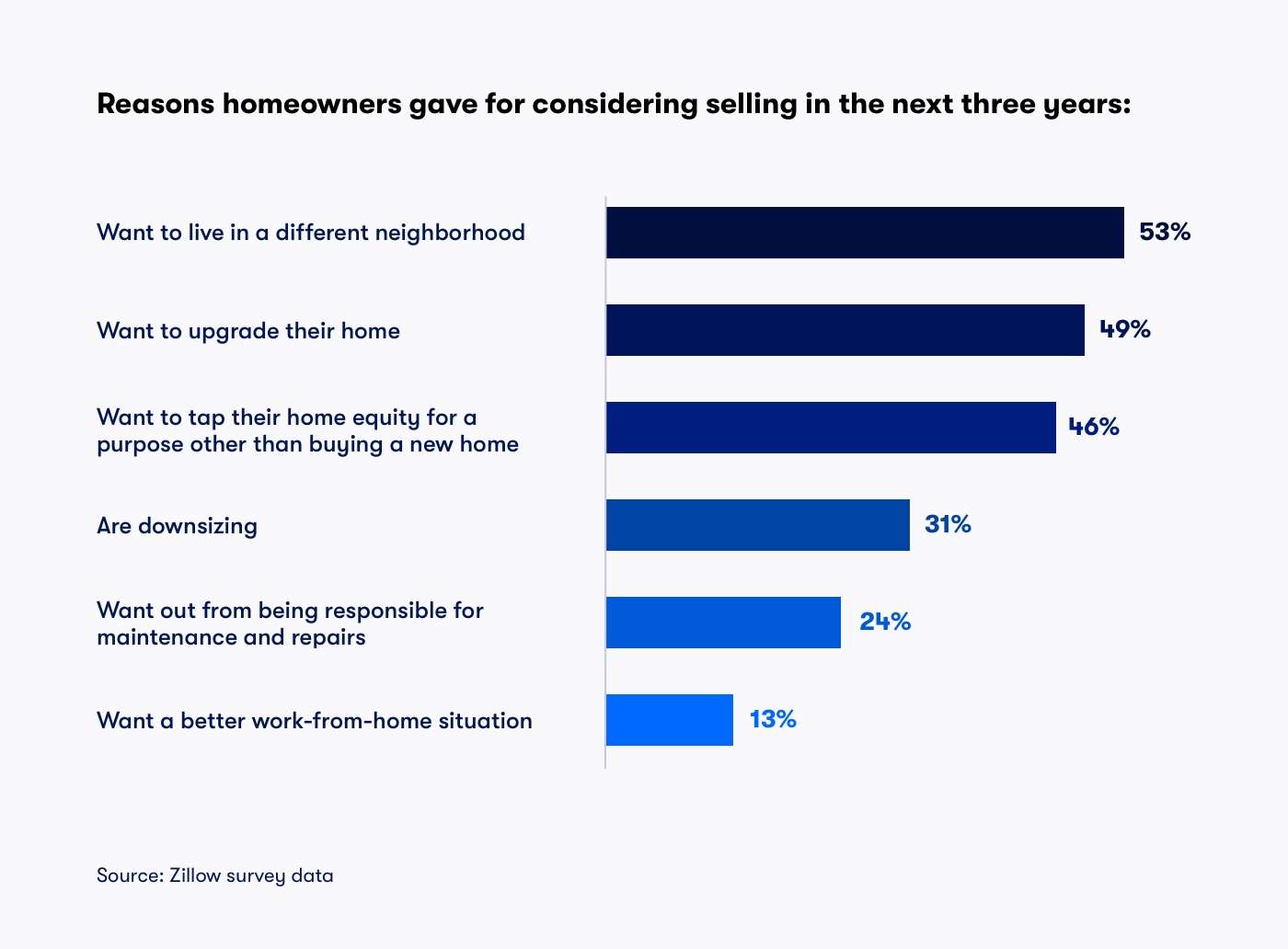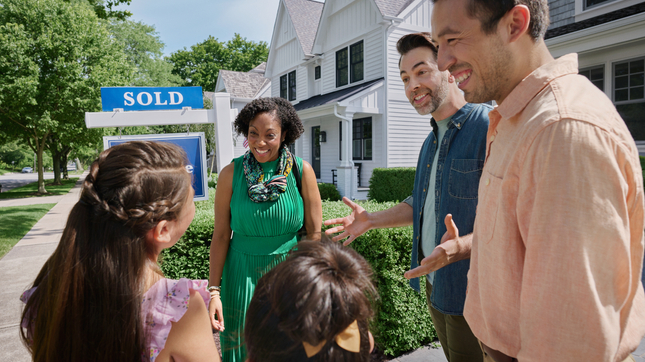Potential Sellers Are Growing More Confident


Susan Kelleher
April 1, 2021
5 Minute Read
In a normal year, we’d be talking about gearing up for the traditional selling season, the time period when listing a home for sale is more likely to attract the most eyeballs and maximum dollars.
But the selling season appears to have started already — in October. If anything, we’re into Season Three, and home sales are still going full blast — with more to come.
Zillow research shows that homes appreciated faster in 2020 than they have in more than a dozen years; in January, they sold at more than twice the rate as the previous two Januarys.
Even more stunning: Zillow economists predict that about 6.6 million existing homes will sell this year — just over 17% more than in 2020.
Homeowners thinking about selling in the near future seem to be taking it all in.
With the rollout of vaccines against COVID-19, 70% of homeowners in a recent Zillow survey say they would feel mostly or completely comfortable moving to a new home when vaccines are widely distributed — and 78% of homeowners who say widespread vaccine distribution would impact their decision to move say such distribution would makes them more likely to move.
That’s good news for buyers.
Seller confidence expected to grow due to COVID-19 vaccines
Last fall, Zillow research found that 29% of homeowners reported that their life or financial situation was too uncertain. The share of homeowners feeling such uncertainty in January dropped to 25%, a sign that potential sellers are growing more confident amid positive news about the continued demand for homes, rapid home appreciation and vaccine distribution.
Homeowners who sold their homes during the uncertainty of 2020 were often rewarded with offers above the list price, shorter selling times and buyer demand that lasted well past the traditional “peak” selling season. That trend is likely to continue into 2021 as vaccine distribution continues to help open the economy.
'We expect that the vaccine rollout will likely boost inventory, as sellers become increasingly willing to move despite COVID-19 — resulting in greater numbers of new listings beginning this spring,' says Chris Glynn, principal economist at Zillow. 'That injection of inventory could give buyers more options and breathing room in a competitive market. The vaccine, however, will also likely add to already-strong demand, given that most sellers will become buyers as they trade in for a home that better suits their new needs.'
Zillow research shows that 63% of sellers are also buyers. And, as buyers, they have specific reasons for selling.
Sellers have many reasons for moving
A recent Zillow survey shows that homeowners who are thinking of selling in the next three years have a variety of reasons for doing so.

Additionally, 26% want to live closer to family, 24% wanted out from being responsible for yard work, 14% say their family or household is getting larger and 13% say they can no longer afford their home.
Buyer demand remains high as more sellers may enter the market
The U.S. housing market delivered a lot of surprises in 2020, but few were more stunning than the sustained demand from buyers that pushed home sales to highs not seen since 2006.
By year’s end, 5.64 million existing homes had changed hands — 5.6% more than in 2019. And 811,000 newly built homes also found owners, an increase of almost 20% from 2019. The strong buyer demand fueled big gains in home values, pushing the typical U.S. home value to $266,104 in December, an 8.4% increase that represents $20,587 in new equity over a single year.
Zillow economists are forecasting an even hotter market in 2021, driven by historically low mortgage interest rates, a surge of young buyers approaching peak home buying years and an imbalance between buyer demand and the supply of homes for sale.
Given the current market, it’s worth considering why homeowners who say they want to sell aren’t doing so.
Prospective sellers struggle with general uncertainty
Last fall, only 1% of homeowners surveyed by Zillow had their homes up for sale. The rest cited a number of reasons for staying on the sidelines.
1. The potential for better prices in the future
Nearly 40% of homeowners who are considering selling within three years (39%) say they think they’ll get a better price if they wait. They’re not necessarily wrong — although waiting comes with tradeoffs, according to Zillow economist Jeff Tucker.
“Potential sellers are likely correct that home prices have yet to reach their peak,’’ Tucker said, “but in the long run prices tend to rise, so there's no clear 'right time' to sell.”
The catch, he said, is that waiting to sell may raise the cost of trading up to their next home if mortgage interest rates rise.
2. Low interest rates
For sellers who are also buying, mortgage rates can make a trade-up more affordable or less affordable on a monthly basis.
On the other hand, the low interest rates make it more attractive for some would-be sellers to sit tight. The survey found that 15% of homeowners with a mortgage cite a recent refinance as a reason they have not listed their home for sale.
3. Uncertainty around buying
Nearly a third (31%) of the homeowners thinking of selling within three years cite uncertainty around finding or affording a new home once their home sells.
It’s a common problem: Since 63% of sellers also are buyers, the very things that make selling attractive in a hot market also can make it unattractive when viewed through the lens of a buyer.
4. Income changes
The survey found that 27% of homeowners considering selling in the next three years say they experienced a recent change in employment with a decrease in hours or pay.
5. Can’t afford their home
In a more recent survey, 13% of homeowners who are thinking of selling say they can no longer afford their homes. Zillow economists say they don’t expect those distressed property sales to fundamentally change the market dynamics. Mortgage forbearance has kept foreclosures low, and those who do sell will be doing so in a market that still has a lot more buyers than sellers.
Markets differ across the country and every homeowner has their own set of needs, concerns and circumstances. Knowing the forces at work in your market and leveraging that knowledge to serve your clients, whether they be sellers, buyers or buyer/sellers, remains one of the biggest challenges in a year like no other.
Takeaways
- The time for empathy is now. Everything is harder this year. Give yourself a break. Strive to understand where your clients are at emotionally and what they need.
- Seek to understand the hesitant seller. Develop a framework for walking through the pros and cons of selling in the current market. Homeowners who are thinking about selling but are not quite ready need information and your expertise. Help them think through their options. And stay in touch.
- Seller/buyers have special challenges. Many prospective sellers are worried about finding a new place to buy if they sell. Develop a strategy that works for them, and determine whether it makes sense to help them find a new home first before listing theirs.
Source: Zillow Population Science Homeowners Survey, October 2020. Zillow Population Science Moving Sentiment Homeowners Survey, January 2021. Zillow Population Science Survey of Vaccine Impact on Homeowners, January 2021.
Zillow works for agents
We're here to support you and your clients on their journey home. Discover how we can help grow your business today.
Learn more
